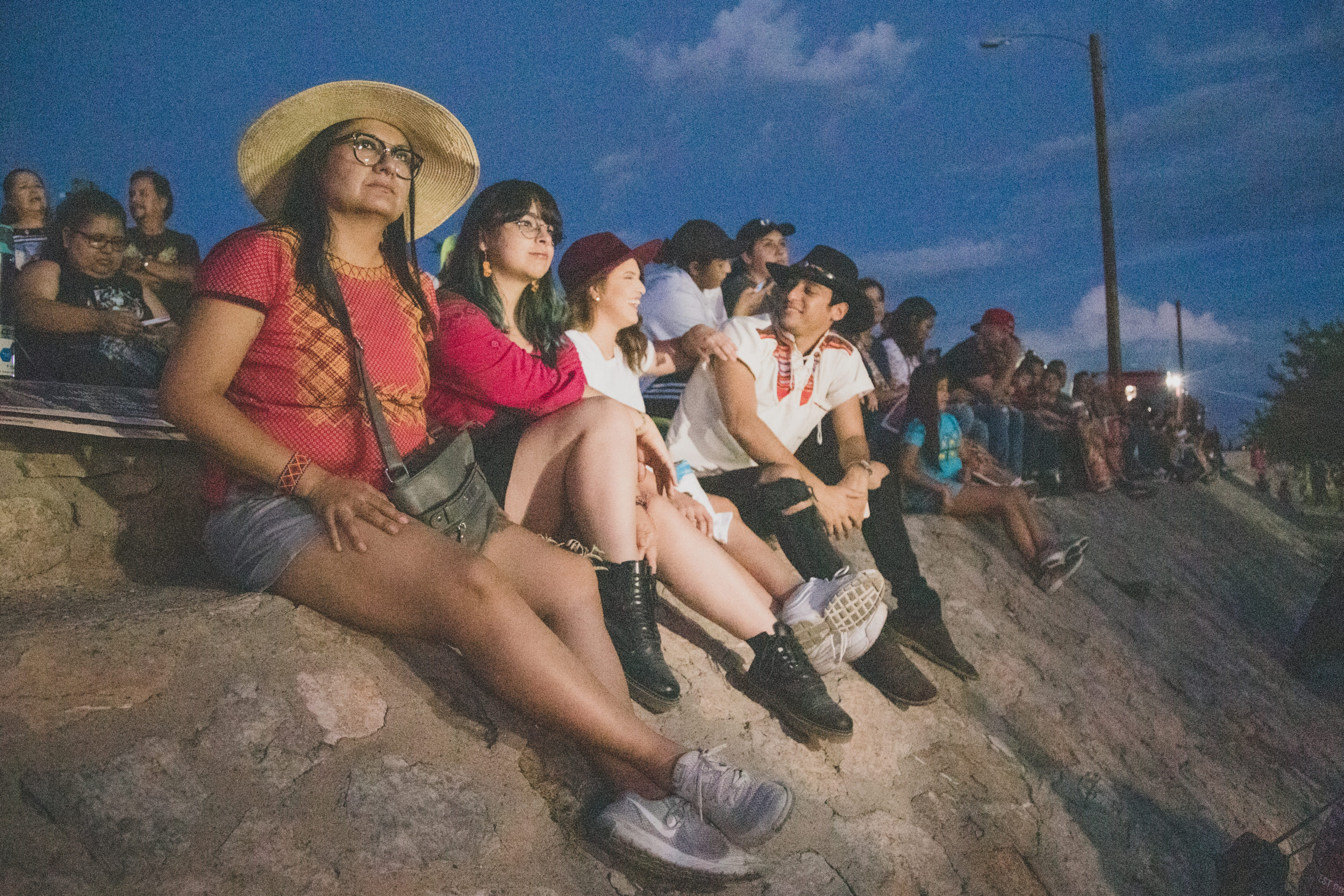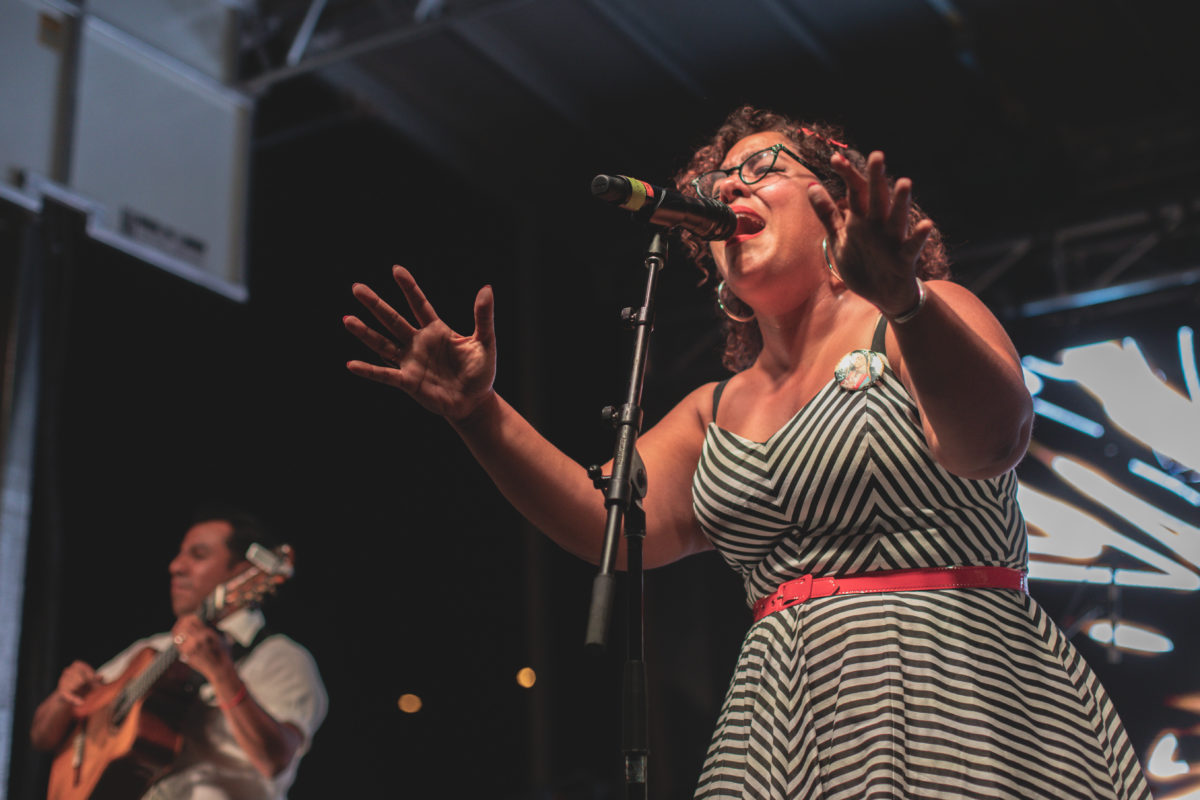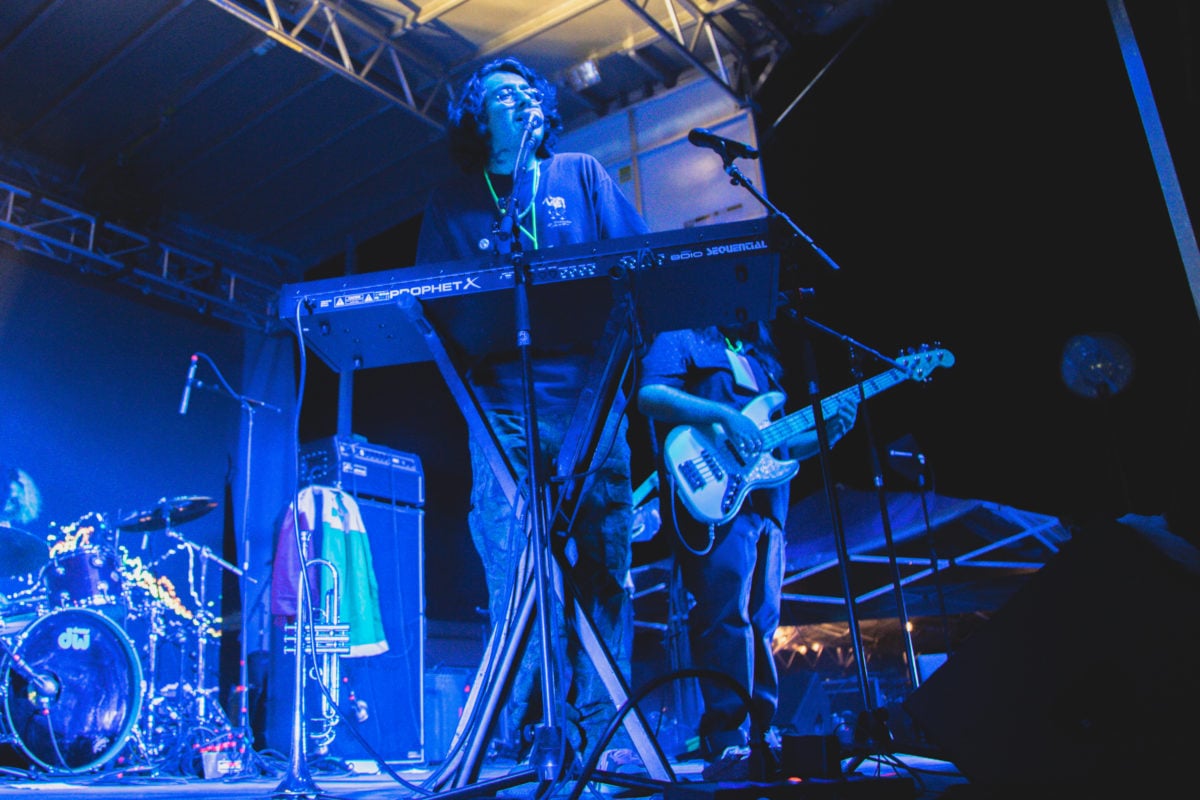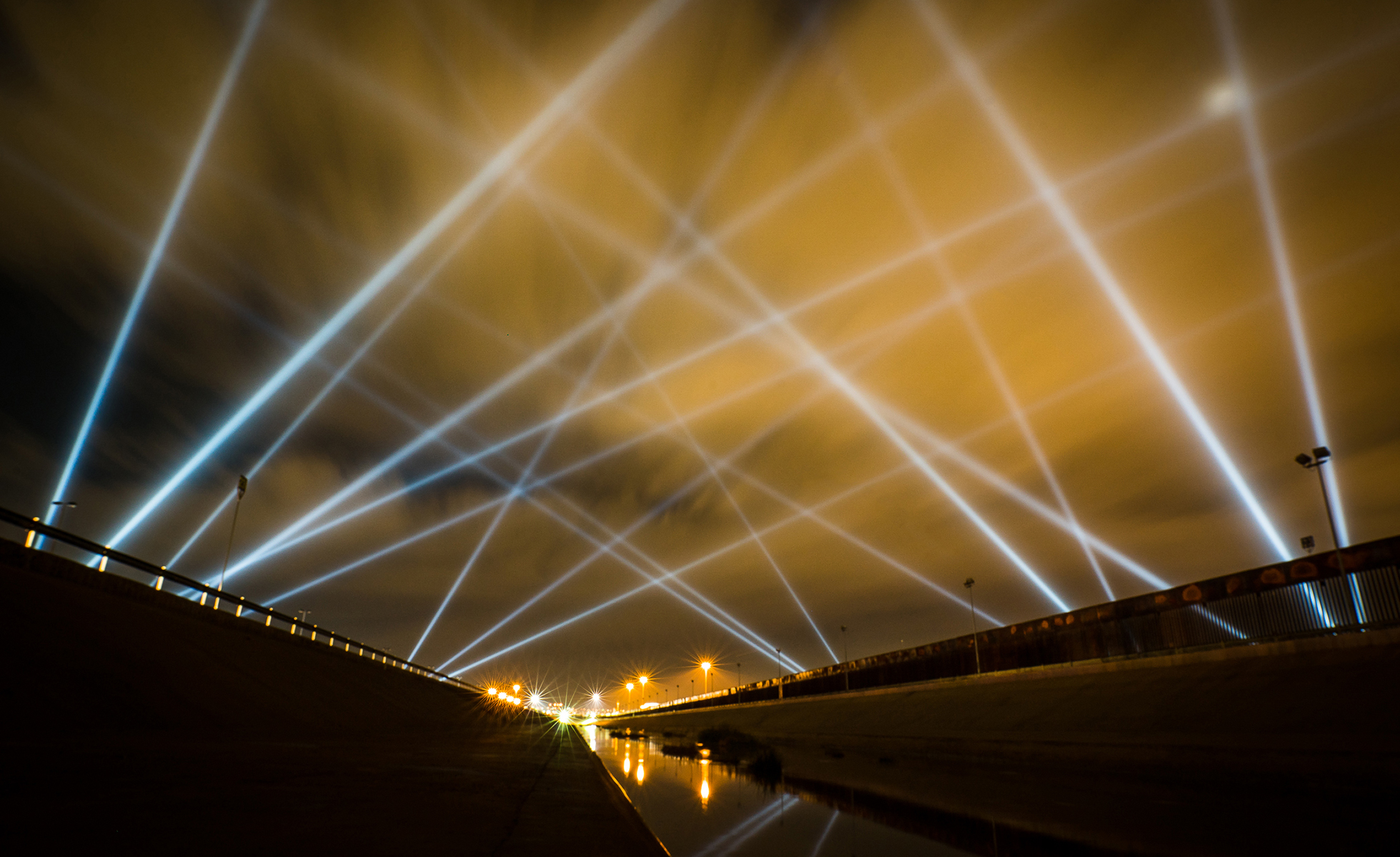
‘El Paso Firme’ Music Festival Calls on Texans to Peacefully Resist White Supremacy
A month after the largest massacre of Latinx people in U.S. history, 1,200 El Pasoans and numerous world-class musicians gathered for a hopeful, healing night.
About 1,200 people attended the El Paso Firme Music Fest on Saturday, a call to action against white supremacy through “the healing power of music.” The all-day event held at Ascarate, a community park surrounded by a lake and a golf course only a few hundred yards from the border wall, featured world-class musicians including the Grammy-award winning Los Angeles group La Santa Cecilia, Chilean-French hip-hop artist Ana Tijoux, Guatemalan rapper Rebeca Lane, and the 21-year-old Mexican-American dream pop sensation Cuco, among others.
Pablo Alvarado, one of the event organizers, explained why musicians were on the front lines of the community’s response to the El Paso Cielo Vista massacre of August 3, the largest mass killing of Latinx people in the history of the United States. “We’ve gone from being scapegoats to being targets in this country. So we have to respond intelligently to that hatred, in a way that can change the whole country,” Alvarado, a labor organizer and musician from El Salvador and Los Angeles, told the audience. “We are going to conquer their hatred with our music, our poetry, and our culture. The white supremacist ideology cannot silence a cumbia or a corrido. We are here to tell our adversaries that we don’t hate them, but we also don’t fear them.”

All of the performers echoed those sentiments from the stage, with music and words that fluidly shifted between different border-crossing musical genres, from Spanish hip-hop to bilingual rancheras. Marisol “La Marisoul” Hernández, lead vocalist of La Santa Cecilia, said she hoped her songs deeply rooted in her Mexican-American culture would promote healing and community. She was one of several performers who serenaded the incarcerated migrants outside an El Paso detention the day before to the accompaniment of guitars, percussion, and accordions. On Saturday morning, others joined a religious procession from the Border Farmworker’s Center to South El Paso’s Sacred Heart Church.
Rebeca Lane connected her own country’s experiences to the recent events in El Paso where a shooter traveled more than 600 miles from the North Texas suburbs to kill 22 Mexicans and Mexican Americans. “There is a war in Guatemala that was started by the United States years ago against our people. It was that violence that led to many of the people in our countries having to migrate to the United States,” she reminded the crowd. “The least thing that a government that is responsible for migration can do is to treat immigrants with fairness and human dignity.”
The mood at the festival was peaceful and family friendly. Banners surrounding the stage were decorated with hearts, doves, and slogans promoting inclusivity and community. “We Are One/Somos Uno,” one banner read. Posters everywhere repeated the event’s central message: “El Paso Firme.” In colloquial border speech, “firme” roughly translates to “take a firm step,” or “stay steady.”
Fernando García, executive director of the Border Network for Human Rights, the organization that hosted the event, explained that organizers chose not to adopt the “El Paso Strong” slogan because it has been co-opted by El Paso politicians and power brokers who themselves have have been complicit with systematic racism at the local level. “I’m very disappointed with the politicians who wear ‘El Paso Strong’ buttons, yet they sit at City Council or school boards where they carry out policies that carry out attacks against our immigrant communities through displacement, gentrification, environmental racism, and school closures in the poorest neighborhoods,” García said. “White supremacy doesn’t only come from the outside.”
Right before the final act of the night, hundreds of eager teenagers pushed toward the front of the stage, chanting, “Cuco! Cuco! Cuco!”

The exuberant audience suddenly stopped their cheers when survivors of the Cielo Vista Mall shooting walked onstage and shared how it felt to be trapped inside the store during the massacre. They listened attentively as one survivor, 78-year-old Guillermo Glenn, urged the young people present to connect with their culture, learn about their own history, and take up the call to action against white supremacy. Glenn’s speech was followed by deafening applause.
Then the music started again. It went on past midnight, with the sounds of love, positivity, and resistance floating across the rust-colored border wall behind the stage to the neighboring city of Juárez.
READ MORE:
- The Fight to Commemorate a Massacre by the Texas Rangers: In 1918, a state-sanctioned vigilante force killed 15 unarmed Mexicans in Porvenir.
- White Terror on the Border: After an anti-immigrant shooting in El Paso, Texas’ GOP leaders blamed mental health and video games rather than gun laws and white supremacy.
- Otherness Among Us: The legacy of the Crystal City, Texas internment camps poses a difficult question about the balance between national security and personal liberty.



